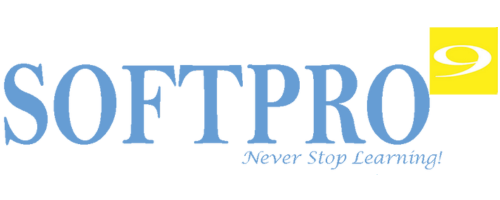
MEAN vs MERN: Which Tech Stack Should You Choose in 2025?
#1 Myinstitutes.com is one of the best educational portals and training institutes in MYSORE, MANGALORE, and BANGALORE.
MEAN vs MERN: Which Tech Stack Should You Choose in 2025?
Introduction
The rapid evolution of web development technologies has presented developers with numerous choices when building modern applications. Among these, the MEAN and MERN stacks have emerged as two of the most popular full-stack JavaScript solutions. As we move into 2025, developers and businesses alike are re-evaluating their tech stack choices to meet the demands of modern web applications.
Choosing the right stack can significantly impact the efficiency, scalability, and performance of your project. While both MEAN and MERN stacks offer powerful solutions, they differ primarily in their front-end frameworks: Angular in MEAN and React in MERN. In this article, we will explore the core components, differences, pros, and cons of each stack to help you make an informed choice.
Understanding MEAN and MERN Stacks
Before diving into comparisons, let’s break down what each stack entails:
What is MEAN?
MEAN stands for:
- MongoDB: A NoSQL database that stores data in flexible, JSON-like documents.
- Express.js: A lightweight web application framework that handles backend routing.
- Angular: A front-end framework maintained by Google, ideal for building dynamic, single-page applications.
- Node.js: A JavaScript runtime that executes code server-side.
The MEAN stack is known for its organized structure, two-way data binding, and the ability to create highly structured and large-scale applications. It follows the MVC (Model-View-Controller) architecture, which ensures a separation of concerns.
What is MERN?
MERN stands for:
- MongoDB: The same NoSQL database as in MEAN.
- Express.js: The same backend framework as in MEAN.
- React: A front-end library developed by Facebook, focused on building fast and interactive user interfaces.
- Node.js: The same runtime environment as in MEAN.
MERN stack is popular for its component-based architecture, fast performance due to React’s virtual DOM, and ease of integration with other libraries.
MEAN vs MERN: A Comparative Analysis
1. Front-End Framework: Angular vs. React
The most significant difference between MEAN and MERN lies in the front-end technology:
- MEAN (Angular): Angular is a complete framework with built-in features like dependency injection, templates, and two-way data binding. This structured approach is beneficial for large enterprise-level applications.
- MERN (React): React is a library, not a complete framework. Its focus on building UI components makes it more flexible but less opinionated. The virtual DOM enhances performance in dynamic applications.
Which to choose?
If you prefer a structured, opinionated framework with built-in features, go for MEAN. For a more flexible and fast front-end solution, MERN is preferable.
2. Performance and Efficiency
Performance is critical for modern web applications, especially those with real-time interactions.
- MEAN: Angular’s two-way data binding can become a performance bottleneck as the application scales. However, its modular structure helps manage complex projects efficiently.
- MERN: React’s virtual DOM significantly enhances speed and performance, particularly in dynamic applications where frequent updates are required.
Verdict:
MERN is often the go-to choice when performance and responsiveness are a priority, particularly for applications requiring high interactivity.
3. Learning Curve and Community Support
When it comes to learning and community support, both stacks have their pros and cons:
- MEAN: Angular’s steep learning curve can be challenging for beginners due to its complex concepts like dependency injection and decorators. However, once mastered, Angular’s comprehensive structure makes development consistent.
- MERN: React has a gentler learning curve, especially for those familiar with JavaScript. Its component-based architecture is easier to understand, and the ecosystem is vast, offering countless libraries and tools.
Which is easier to learn?
For developers just starting with full-stack development, MERN is often considered more beginner-friendly.
4. Scalability and Flexibility
Scalability is vital for applications that anticipate growth.
- MEAN: Angular’s modular structure and use of TypeScript make scaling more manageable in enterprise-level projects.
- MERN: React’s flexibility allows developers to integrate third-party libraries easily, but managing large applications can become complex without a consistent structure.
Recommendation:
If scalability and structure are crucial, MEAN might be a better choice. For smaller, dynamic projects, MERN is sufficient and more adaptable.
5. Use Cases: When to Choose MEAN or MERN
- MEAN is Ideal for:
- Enterprise-level applications requiring structured architecture.
- Applications where consistency and organization are critical.
- Projects benefiting from Angular’s robust built-in features.
- MERN is Ideal for:
- Dynamic and interactive applications like social media platforms.
- Projects that require fast, real-time updates and performance.
- Applications where the flexibility of the UI is crucial.
Final Thoughts: MEAN vs MERN in 2025
Both MEAN and MERN stacks have their strengths and weaknesses, but the choice largely depends on your project requirements and your team’s expertise. MEAN’s structured approach is ideal for large-scale, enterprise applications, while MERN’s flexibility and performance make it a top pick for dynamic, modern web apps.
In 2025, as web applications continue to demand faster performance and more interactive UIs, MERN may have a slight edge for developers seeking speed and flexibility. However, MEAN’s consistency and robustness ensure it remains a strong contender for more structured, enterprise-grade applications.
Choosing the right stack ultimately comes down to your specific use case, team skill set, and long-term project goals. So, weigh your options carefully and make an informed choice!
Top 3 Agriculture Organic farming Courses in Bangalore
- Myinstitutes
- University of Agricultural Sciences
- Bhoomi Network



